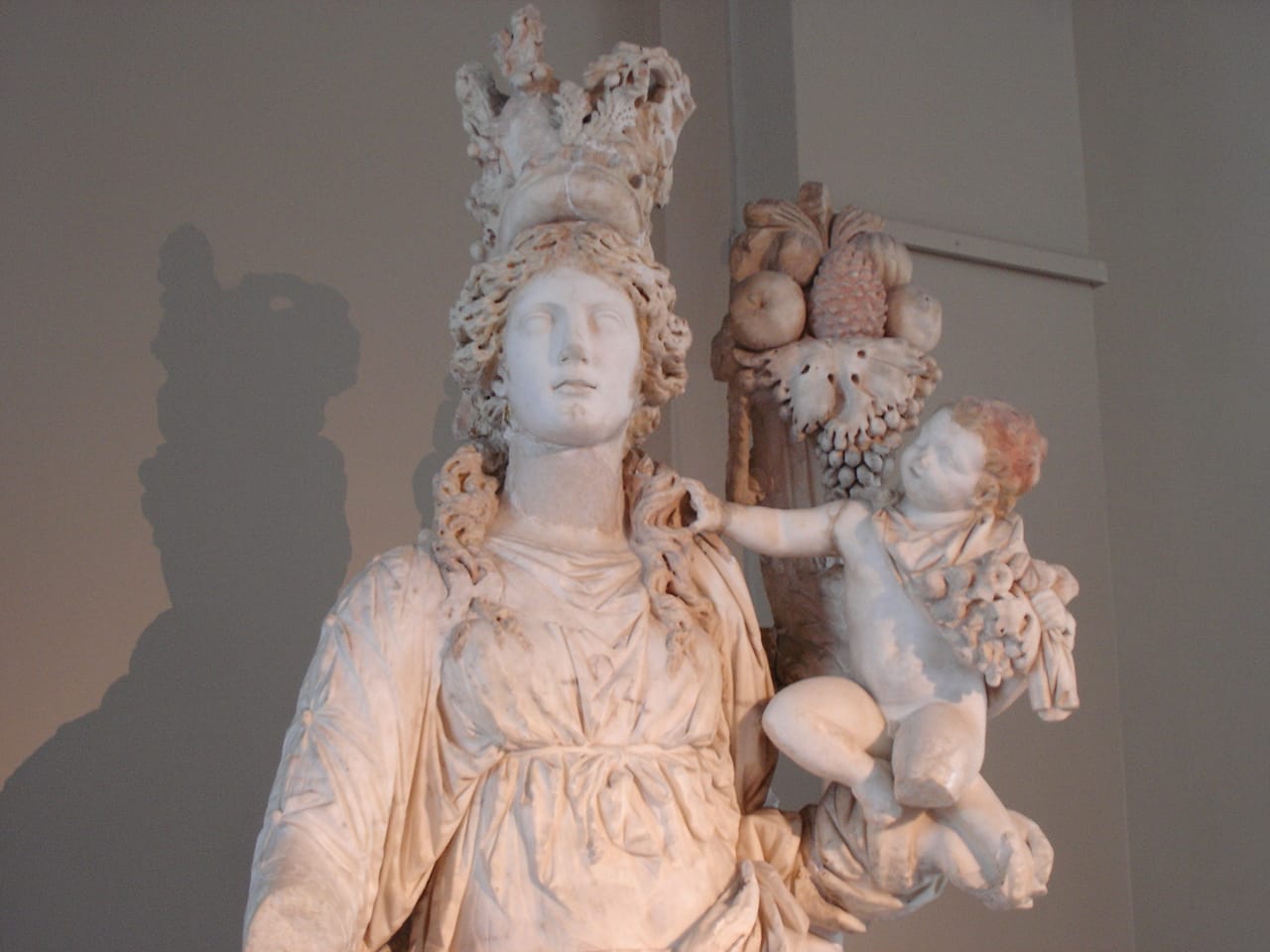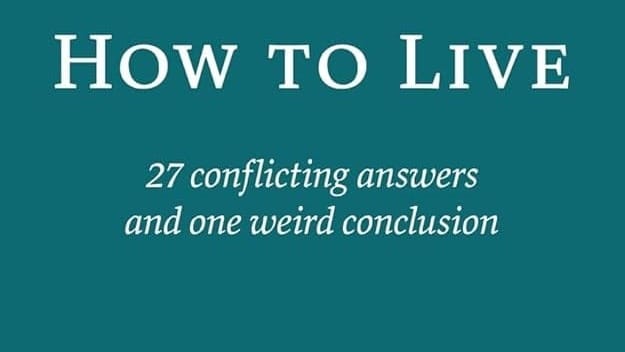Swinging Between "You Built This" and "Fate Built This"

Anybody else remember Obama's "You didn't build that" moment? It was 2012, and he was making a point about infrastructure, education, and the collective foundation that makes individual success possible. "If you've got a business, you didn't build that. Somebody else made that happen."
The Republican response was swift and merciless. "We Built This" became their convention theme. Banners everywhere. The message was clear: We are the masters of our own destiny. We earned everything we have. We don't owe our success to anyone or anything beyond our own hard work and smart choices.
That moment crystallized something I've been thinking about while reading Tom Holland's Dominion—this fascinating pattern where human societies keep swinging between two worldviews like a historical pendulum. On one side: "You control your destiny through right actions." On the other: "Larger forces beyond your control shape outcomes."
We've been having this exact argument for over two thousand years.
The Ancient Swing: From Fate to Reason and Back Again
Holland walks through ancient Greece starting around 300 BC, and what he shows is remarkable. Despite having brilliant philosophers like Aristotle talking about the unmoved mover and the power of reason, most people still believed that fate—not divine providence, but something more like the accidents of history—was the primary force shaping human lives.
You could be a philosopher pursuing the good life through rational choices, but ultimately, fate decided whether your city-state got conquered, whether you died of plague, whether your trade routes stayed open. There was this capricious, unpredictable force that determined the destiny of people, kingdoms, empires, and dynasties, and it wasn't particularly interested in your moral choices or philosophical insights.
What's happening in America feels, to me, like a mirror image of that ancient tension. We've lived through the high tide of individualism—the "pull yourself up by your bootstraps" mythology that insists we're all masters of our own destiny. The whole American dream apparatus that says the people at the top deserve to be there, the people at the bottom deserve to be there, and it's all because of their individual decisions.
But that myth is cracking. My wife Emily's been reading a book about wealth that helps demolish the "10 simple rules to financial freedom" fantasy. The top earners didn't follow some universal formula—they got there through family trees, genealogy, what zip code they happened to be born in, what century they happened to be alive in.
Society, maybe, is swinging back toward something that looks a lot like the ancient concept of fate, except now we call it "systems." People who are poor aren't poor because they made bad moral choices—they're poor because of decisions that were completely out of their hands. People who are wealthy aren't wealthy because they're more virtuous—they're wealthy because of systems, structures, and circumstances that had nothing to do with their individual merit.
As Walter Wink puts it, "the system is greedy on our behalf." You can try not to be a greedy farmer or business person, but the system operates with its own logic, pursuing its own interests, regardless of your individual virtue.
The Biblical Pendulum: Deuteronomy vs. Job
This tension is baked right into Scripture itself.
The Deuteronomistic principle is everywhere in the Hebrew Bible—if you do the right thing, you'll get blessed; if you do the wrong thing, you'll get cursed. It's the overriding theology for why Israel got exiled. They worshipped the wrong gods, they did the wrong things, and they got trampled by Assyria and Babylon. Simple cause and effect.
But then you get to Job—this very late composition that's willing to question the whole framework. Job's so-called friends show up and say, "Hey, you're suffering, you must have done something wrong." And Job's like, "Actually, I think God might just be capricious." The book of Job is basically a 42-chapter middle finger to Deuteronomistic theology.
Ecclesiastes does the same thing. It bucks against proverbial wisdom and says, "You know what? Everything is pointless. Time and chance happen to everyone. The race doesn't always go to the swift, the battle doesn't always go to the strong." Sometimes life is just absurd.
Hebrew Bible scholar James Kugel points out that you can find two completely different conceptualizations of God in the Hebrew Bible. One is very comfortable with a human-like God who changes their mind, shows up in gardens, requires sacrifices and temples. The other is closer to Aristotle's unmoved mover—everywhere, knowing everything, non-corporeal.
That shift maps perfectly onto our pendulum. The first God responds to your individual actions—sacrifice to the rain god to get rain. Easy. The second God operates through larger systems—your empire needs to conquer someone's land to get access to their rivers and aqueducts, and it has nothing to do with sacrifice.
The Modern Church's Meritocracy Problem
So where does this leave American Christianity? Mostly stuck on the wrong side of the pendulum.
Prosperity gospel preachers are the most obvious example—pray the right prayer, believe the right thing, give the right amount, and you will prosper. It's mechanistic theology that would make the Deuteronomist proud. But it's not just the health-and-wealth crowd. Mainstream evangelicalism has baptized meritocracy so thoroughly that financial struggle becomes a sign of spiritual failure. The rich deserve to be rich. The poor deserve to be poor. (There's typically tons of racism baked into this, as well; Black people are poor and have bad healthy due to their "culture" or bad decisions; it has nothing to do with centuries of systemic oppression.)
Dave Ramsey's whole empire is built on this lie. Follow these simple steps, make these disciplined choices, and you'll be financially free. Never mind that most people drowning in medical debt didn't choose to get cancer. Never mind that most people can't afford housing because wages have been stagnant for decades while housing costs have exploded. Never mind that the people living downstream from rivers being polluted by corporations didn't get cancer because of their poor moral decisions.
But a progressive response isn't much better when it swings all the way to the other extreme. If everything is systems and structures, if individual choices don't matter, then why bother with personal responsibility at all? Why work on yourself? Why pursue growth? Why even get out of bed? As long as it feels good, how can it be wrong?
I just had a conversation with a libertarian friend—a non-Trumpian libertarian, which apparently still exists. We were bemoaning the state of politics, and his solution was basically, "We just need to build better relationships." And, look, I mean, that's part of it, but it can't be the whole thing! We also need systemic change. We have to work against what the principalities and powers. Or battle isn't with flesh and blood. It can't solely be up to the individual to build better relationships.
You know what, therapy's great. Not living under authoritarianism would be better! Therapy's great—having a society that cares for its sick, elderly, and poor would be better.
Synergeo: A Third Way
I think open and relational theology offers something genuinely helpful. I am a prosperity gospel preacher insofar as I believe God is always working maximally for the well-being of all people. God wants shalom, prosperity, flourishing for everyone.
God is always working maximally for good, but God can't bring about good single-handedly. Because God is defined by non-coercive love, God must work in cooperation with creation—and that includes us.
Paul uses this beautiful word: synergeo. We are God's co-workers. Literally, "combined energy." It was a Christian word before it became a corporate buzzword.
There's a back-and-forth between systems being greedy on our behalf and our responsibility to dismantle those systems. It's not that God wants nothing to do with us or just leaves it all up to us. God is wooing, cooperating, collaborating. But God also can't override human freedom or natural laws or economic systems without becoming the very kind of coercive power that God refuses to be.
There are forces working against us—principalities and powers. You can see it all as individual choices only if you want to maintain the meritocracy myth. Or you can see it as fate, chance, the capriciousness of systems beyond any single individual's control.
Living in the Tension
It's hard to maintain this complexity. I'd love to blame just Trump for the way this country has gone, but Trump is only the avatar of a much larger system that propped him up. I'd love to blame the evangelical church for so much of the world's suffering, but the evangelical church was also doing more good than harm in its origins with abolition and social justice in the 1800s.
I'll admit that there can be something unsatisfying about open and relational theology. I wish God could just make everything better all at once. It feels like giving something up to say that's never going to happen. But I'd rather believe that than believe God could make it happen and is just choosing not to for some terrible reason we can't understand.
As Tom Oord puts it: God needs us. If God can't single-handedly make the world better, that means God needs our cooperation.
This means the Bible shouldn't be used to shame people for circumstances beyond their control. It means most financial advice out there is probably BS. It means racism isn't going away if we just build more relationships across racial lines. And it also means we can't only blame things larger than ourselves.
Holding both of those truths at once can be a real challenge. But what I'm convinced of is that the people who've figured out how to live in that tension, who can hold both personal responsibility and systemic awareness without losing their minds—those are the people actually changing the world.
The pendulum will keep swinging. That's what pendulums do. But perhaps we can learn to recognize the pattern and refuse to get stuck on either side. We can learn to live as God's synergeo—taking responsibility for our choices while also working to dismantle the systems that make good choices impossible for too many people.
What the kingdom of God actually looks like is not the triumph of individual merit or the resignation to systemic fate, but the sacred work of cooperation between divine love and human agency, spiraling slowly toward justice.






Discussion